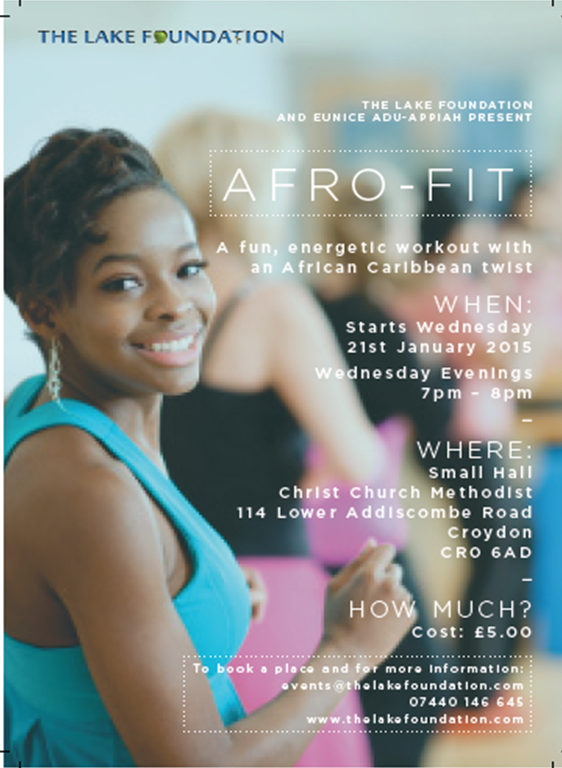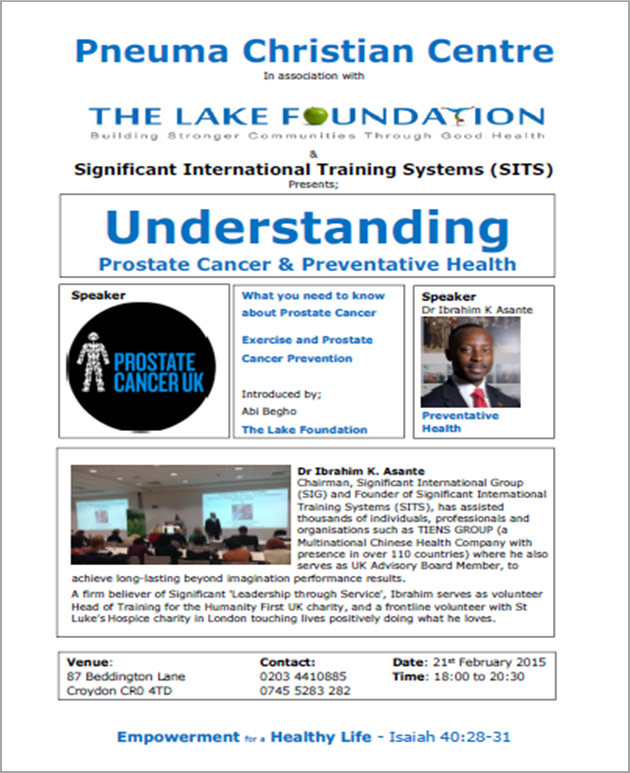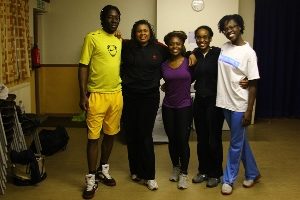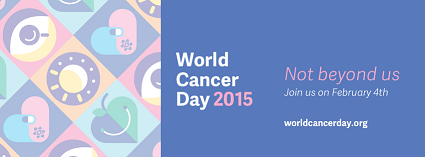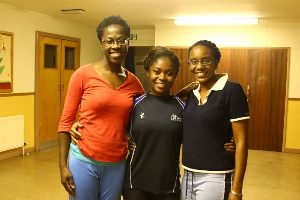Raising Awareness of Prostate Cancer at the Pneuma Christian Centre
On Saturday 21st February we continued with our work to raise awareness of prostate cancer amongst black men in Croydon by organising an Understanding Prostate Cancer session at the Pneuma Christian Centre.
Like our previous sessions at Trinity Baptist Church and Croydon Tabernacle this was a collaboration between The Lake Foundation, Prostate Cancer UK and Eunice Adu-Appiah as part of our drive to reach as many black men as possible with the key messages about prostate cancer and prostate conditions.
Our prostate cancer awareness session formed part of the Pneuma Christian Centre’s Men’s Week Conference with the theme being: Empowerment for a Healthy Life based on the bible scripture Isaiah 40:28-3.1
The workshop began with a welcome and introduction by Abi Begho of The Lake Foundation followed by an excellent, informative presentation by Georgina Graham from Prostate Cancer UK. Georgina’s presentation covered what every man should know about prostate cancer and prostate conditions. She explained the three main prostate conditions that affect men, which are an enlarged prostate, prostatitis and prostate cancer and that all of these conditions have similar symptoms such as:
- Dribbling urine
- Needing to pee more often, especially at night
- Difficulty starting to pee
- Straining or taking a long time to finish peeing
- A weak flow
- A feeling that your bladder has not emptied properly
- Needing to rush to the toilet
It was stressed that if men experience any of these symptoms they shouldn’t panic as it could be due prostatitis or enlarged prostate, but they must visit their doctor to rule out prostate cancer.
Georgina also covered the risk factors for prostate cancer which are: age (prostate cancer is more common in men who are over the age of 50); ethnicity (black men are twice as likely as white men to develop prostate cancer); and family history (men with father or a brother with prostate cancer are 2.5 times more likely to develop prostate cancer compared to men who don’t have a family history).
Georgina finished off her presentation by letting attendees know that they have the right to have a PSA test if they are 50 or over and that it is particularly important for black men to be more vigilant and visit their GP if they have any concerns whatsoever.
Georgina’s presentation was followed by a Q&A where we discussed prostate cancer treatments, the digital rectal examination, how often the PSA test should be conducted and what causes prostate cancer.
After a quick refreshment break we heard from Eunice Adu-Appiah who spoke about exercise, diet and prostate cancer prevention.
Eunice explained that several research studies have shown that men who regularly exercise were at a lower risk of developing prostate cancer and hence men can take some control over their health and reduce their risk of developing prostate cancer and other diseases by simply being more active. We learnt that regular exercise means taking part in 150 minutes of exercise a week and that this should be both cardiovascular and muscle strengthening exercises. Eunice explained that whilst 150 minutes of exercise may sound like a lot this can easily be achieved by breaking these up into 10-15 minute slots throughout the day. For example we could do a few lunges and squats in the morning whilst brushing our teeth and preparing breakfast, then we could walk part of the way to work, take the stairs instead of the lift and go for a walk at lunch time. Before you know it we would have easily met the minimum requirement of 150 minutes of exercise per week.
Eunice then spoke about diet recommending that we avoid saturated fat, trans fat and red meat. Eunice ended by explaining that we don’t have to make drastic changes but changes to our lifestyle should be gradual with the ultimate goal being to adopt a healthy lifestyle where we are active, we eat a well-balanced diet and we factor in some time for relaxation too.
This was a really useful event with a lively, friendly and attentive audience. We’d like to say a big thank you to everyone who attended, to Georgina Graham and Eunice Adu-Appiah for delivering really informative presentations and to Deacon Dele Ogunlaru and the leadership of the Pneuma Christian Centre for inviting us to host this session.
You can listen to an excerpt from Georgina’s presentation below.







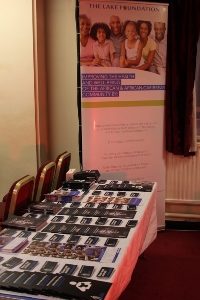
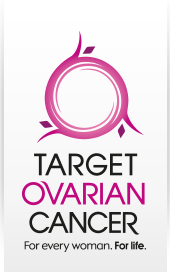
 r.
r. g a way to bring manageable exercise into your life
g a way to bring manageable exercise into your life